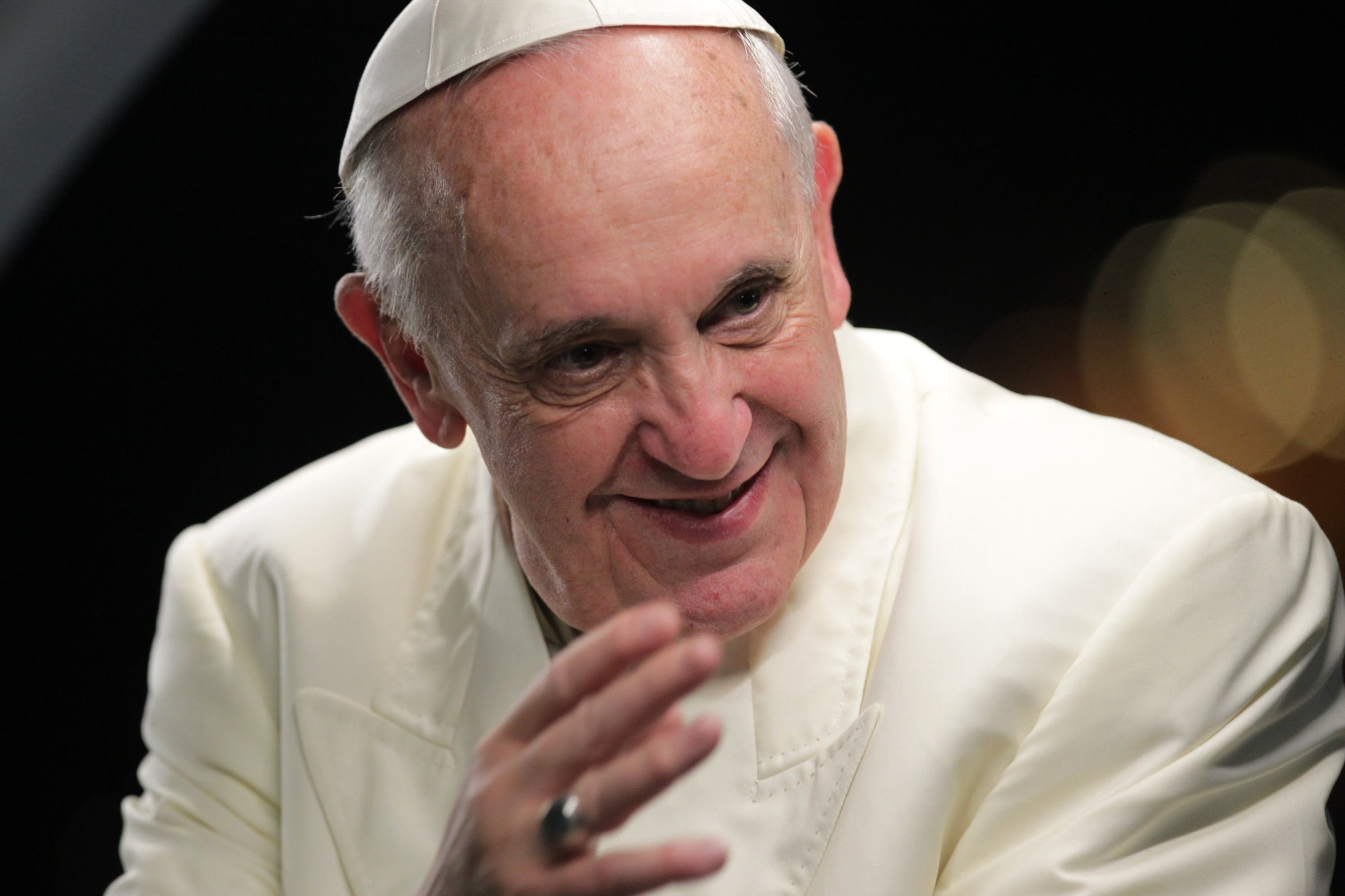
It was a rainy Roman night that surpassed all superlatives. A year ago today, hundreds of thousands of pilgrims waited under their umbrellas in St. Peter’s Square waiting to meet the new pope. After a long wait with a record setting television audience, the mostly young crowd was brought to silence when the new pope was announced: Jorge Mario Bergoglio.
We had briefed ourselves substantially for this moment. We knew all the contenders, and we had read all the biographies. But we most decidedly hadn’t a clue who Jorge Mario Bergoglio was.
But it didn’t take long for that to change. Within minutes of his election, stories about Cardinal Bergoglio’s past went viral on social media. The photos and stories of him washing the feet of AIDs patients, riding the bus to work and ministering to children and their nursing mothers dominated the international news cycle.
From the moment he appeared on the central loggia of St. Peter’s Basilica only wearing a white cassock, we knew Pope Francis was a game changer.
The media became obsessed immediately with every move Francis made. And rightly so, because every action, from paying his hotel bill in person to personally telephoning victims of violence, showed us that this was a man worth following.
As we commemorate Francis’s first anniversary, it seems that his tenure been analyzed from every possible angle: as a spiritual leader, as a manager, as a social justice activist, as a pop culture phenomenon and so on.
Implicit in all these conversations was a mandate and an agenda for change. We know that Francis wants to reform institutions like the Roman Curia and the Vatican Bank. We know that Francis wants to give women a higher place of authority within the Church. And we know that Francis wants the Church to re-engage secular society in a new way, with particular focus on Jesus Christ and a re-thinking of what it means to be a missionary disciple.
But it seems to us that the media’s exhaustive review of Francis’s one-year pontificate has fallen short. Yes, clearly Francis wants to change various functional and pastoral elements of the Church, but more than anything else, it isn’t things that Francis wants to change.
It’s us.
Faith, the pope argues, must change a person. A few years ago, he put it well: “[I]f one is faithful, one changes. Fidelity is always a change, a blossoming, a growth. The Lord brings about a change in those who are faithful to Him. That is Catholic doctrine.”
While the media is still hacking at the leaves, this message strikes at the root of Francis’ pontificate. Perhaps, we’ve missed this because there is a voice missing in this conversation: that of the young. This is unfortunate, because perhaps more than anyone else, our lives will be affected by Pope Francis.
If the Francis agenda is about personal change then the sure catalyst of this reform is mercy. During his first Sunday Mass, he said that mercy was Jesus’s “most powerful message.” His words continue to ring in our ears: “The Lord never grows tired of forgiving us. It is we who tire of asking for forgiveness.”
Millennial Catholics in the United States are especially ready to respond to Francis’s call. We are the only American Catholic demographic that has shown a rise in mass attendance over the past decade. Our mass attendance rates have risen eight percent, while other generations lag or hold steady. Millennial Catholic women are almost twice as likely as Catholic women overall to respond openly to the Church’s teaching on sexuality. And we are the generation that polls both strongly concerned for poor children and for children in their mothers’ wombs. We are a generation that increasingly does not fit the political categories of our parents.
We have also experienced personally the harsh realities of this world, realities like abortion, poverty, excessive materialism and familial discord.
Francis speaks our language. He is a man who, within the context of his humanity, is willing to engage in the gritty new reality that Christians and especially young people find themselves living in. Our generation grew up with close friends who are gay. We all know someone who has had an abortion. Half of us grew up in broken homes.
He has been willing to propose the truths of the faith in a new way: that all men and women are redeemed and made holy by God’s love in Christ and that their authentic individual and communal flourishing must be the fundamental goal of all human activity. He also embodies in his words and his deeds the notion that there is no such thing as liberal Catholic or conservative Catholic, social justice Catholic or social issues Catholic, just Catholic. Or in his words, “missionary disciple.”
But most importantly, Francis has reminded us that the faith is not simply set of rules, regulations and procedures, but a complex human drama about the goodness of creation, the pain of sin and brokenness, and the power of God’s redeeming love.
This is a man and this is a Church that goes beyond contemporary political labels. This is our faith. This is the faith of the Church. And while we look forward to seeing how Francis will change the Church, we also believe that our mission and vocation as young people is to begin the reform with ourselves—right here and right now.
Christopher J. Hale is a senior fellow at Catholics in Alliance for the Common Good. Ashley McGuire is a senior fellow at the Catholic Association.
More Must-Reads from TIME
- Donald Trump Is TIME's 2024 Person of the Year
- TIME’s Top 10 Photos of 2024
- Why Gen Z Is Drinking Less
- The Best Movies About Cooking
- Why Is Anxiety Worse at Night?
- A Head-to-Toe Guide to Treating Dry Skin
- Why Street Cats Are Taking Over Urban Neighborhoods
- Column: Jimmy Carter’s Global Legacy Was Moral Clarity
Contact us at letters@time.com